- connecting our global business network
30 October 2020
A labour of love and fermentation in the South of France
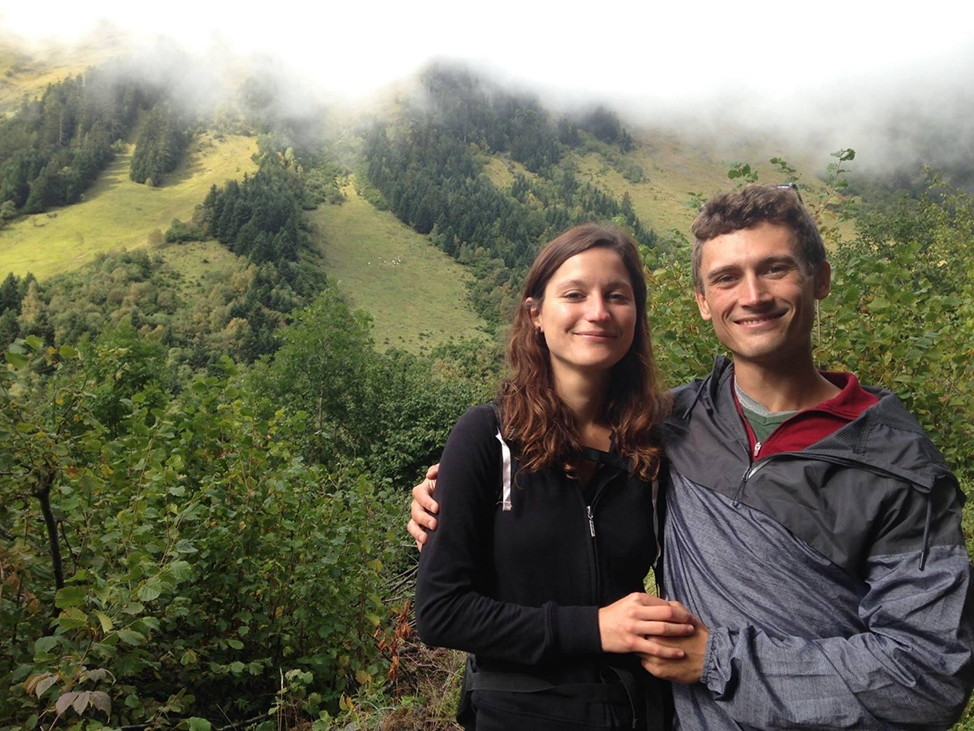
Justin Tarlier-Doecke
Bachelor of Nutrition & Food Sciences
Artisan Fermenter and Founder of L’eau à la Bouche & Komsult
Five years ago, Justin Tarlier-Doecke followed his heart to the South of France. After settling down in the small town of Rimont with physiotherapist wife, Juliette, they established their very own ecologically sound, locally sourced kombucha line, L’eau à la Bouche, with the enviable backdrop of the idyllic Ariège Pyrenees foothills.
Kombucha is a sparkling fermented sweet tea, and although common in Australian supermarkets, is not as popular in France. Justin is taking all he’s learnt in his UniSA Nutrition and Food Sciences degree to inform the process. Having nailed this special recipe with a loyal following, Justin is expanding and even started his own consulting side business, building an international network of brewers.
With a pronounced focus on sustainability – solar electricity, water from a spring less than five kilometres away, organic and fair-trade tea, a community recycling program, and a percentage of profits going to the Pyrenees Ariègeoises Regional Nature Park – the L’eau à la Bouche team are placing greater value on more positive ecological changes and are dedicated to helping more people develop their business so they can survive without having to lose their ethics.
Despite having now survived two significant crises – the yellow vest movement upheaval and a global pandemic – the business is going from strength to strength and they will soon move into a larger facility to better serve their valued customers and continue growing, L’eau à la Bouche.
Now all Justin needs is some more time to explore the beautiful country he calls home.
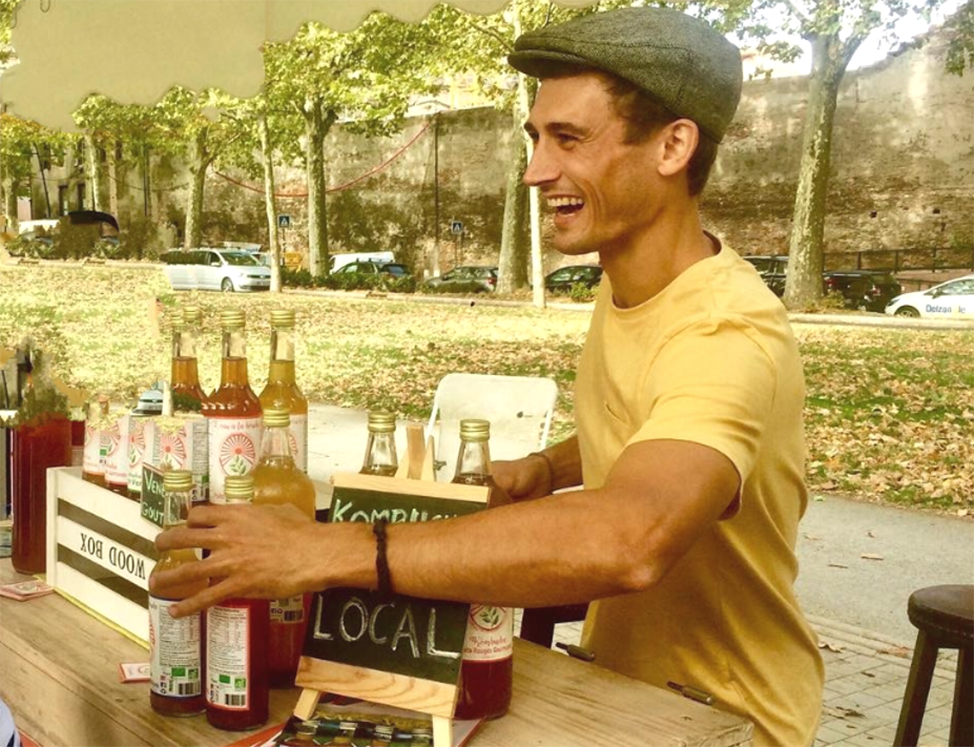
Congrats on all you’ve achieved so far with L'eau à la Bouche! What made you want to start your own kombucha line and where did the idea spark from?
Thanks a lot! I had been brewing for a couple years at home and really liked the flavour. After finishing my studies, I spent some time in the lab researching the health benefits of kombucha as well. This stimulated a further interest and led me to believe that kombucha isn’t just another health trend. When I arrived in France – and found out there isn’t an equivalence for my degree – I had to find something to do, so I thought why not start a kombucha company! The only other brand I had seen was Karma, only in health food stores and I wasn’t particularly taken with their kombucha.
Right place at the right moment, I guess!
How did you end up in the south of France? How familiar were you with France, the French culture and language before making the move – how has this been?
I met my wife Juliette in Nepal in 2012 while trekking in the Himalayan Langtang region. Then while travelling around Europe for five months, I went to visit her at her home in Carcassonne once, then a second time… then a third time… and so the relationship began. We travelled some more together, and Juliette stayed in Adelaide for a couple of years before we decided to come back to France to live.
Didn’t speak the language until I got here and slowly but surely picked it up – quite a few headaches, but worth it. It’s so amazing being able to interact with people in another language, it truly adds another amazing dimension to living somewhere else in the world.
It’s been a rollercoaster of a journey, full of highs and lows, but I wouldn’t change it for the world as every day is just so interesting. I should note, however, that I do miss the family. We were planning on coming back to Australia at Christmas time but unfortunately with COVID-19, it’s not going to be possible.
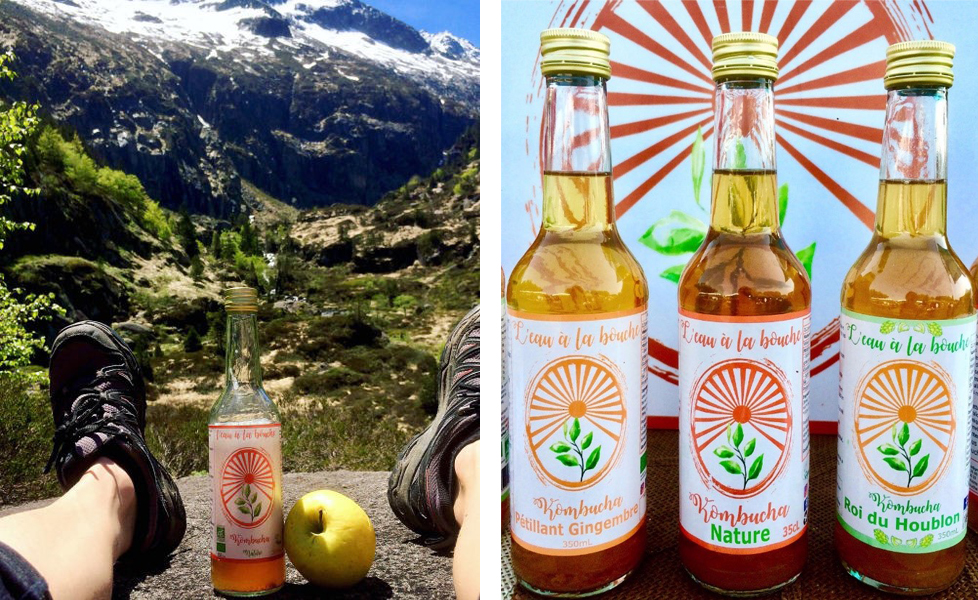
How has your Nutrition and Food Science degree informed what you are creating with L'eau à la Bouche? What are the health benefits of kombucha?
My Nutrition and Food Science degree has been invaluable, the background microbiology knowledge has given me a massive advantage. Even down to things like what to put on labels, understanding Hazard Analysis Critical Control Point (HACCP) and Good Manufacturing Practices (GMPs), hygiene regulations, and while some are different here, having that base has been amazing.
Understanding what not to put on the labels regarding health benefits is also very helpful as the health benefits of kombucha are not conclusive due to lack of human trials (which I hope to begin in the coming years!). However, the acetic acid produced is purported to help repair the mucosa of the digestive tract. The antioxidants in black and green tea have been explored in great detail for their effect on blood circulation and preventive health supplement for cancer (in no way am I staying that my kombucha can help prevent cancer though – just to be clear).
The more widely disputed is the effect on the pancreas, kidney and liver. In animal studies, it has been shown to help detoxify the kidney and liver, as well as improving the pancreas in diabetic rats. Furthermore, the probiotics – which haven’t been specifically studied as the strains differ from producer to producer – are supposed to help keep a balanced microflora which has far reaching effects. It’s just like a soft drink – but produced naturally with less sugar and a great taste – it helps support many small businesses instead of supporting massive corporations.
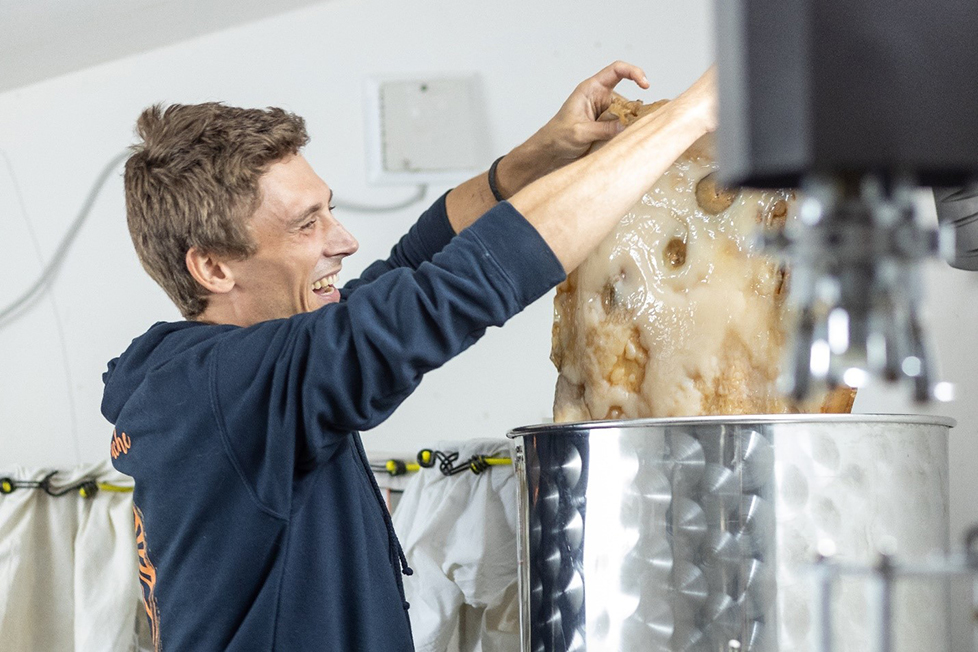
What challenges did you come up against when starting your own business?
Every challenge you could possibly think of – didn’t speak the language, lack of start-up funds, no distribution chains. The product was unknown to the general population as well (now it’s something like 2% of the French know kombucha!), a few years back it was like trying to sell snake charms. Without trying to generalise too greatly the French take a lot longer to catch onto a new idea. While Kombucha is widely available in Australia, it’s only just starting to gain traction here. There was also a lack of space as we were renting with a somewhat renovated garage to get by until we bought our house. Even though it’s once again too small, we will be building a new facility in the coming year if everything goes to plan.
It was a very intense period, but necessary to get through. Rising above those challenges has created an enormous resilience in myself and has helped me to be more thankful of where I am now.
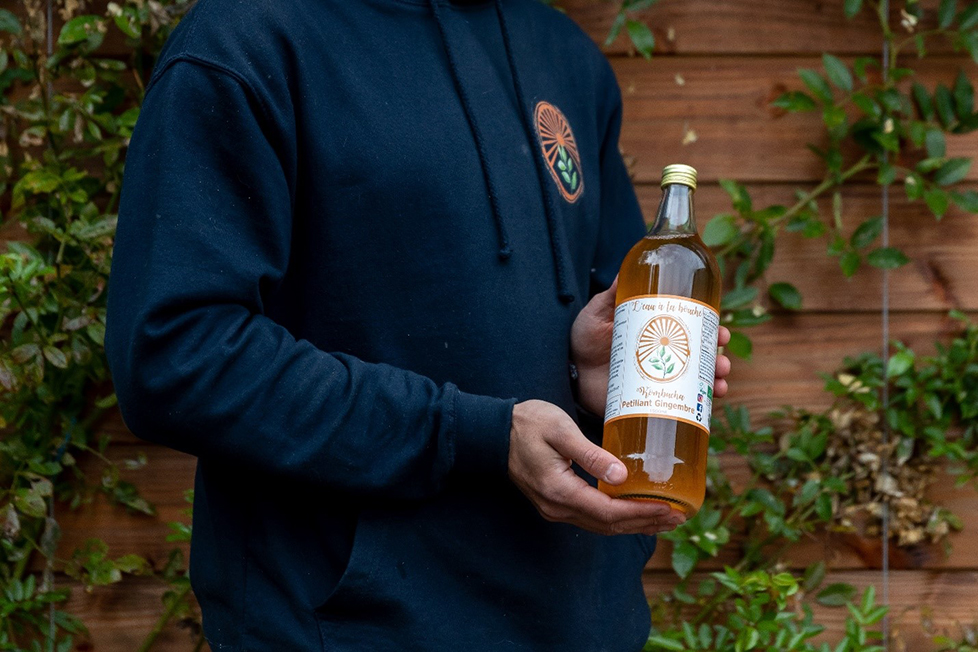
You also recently started a side business – Komsult – could you tell us about this venture and why you decided to go into this area?
After going to the first European kombucha conference in Berlin I had the displeasure of meeting a kombucha company from Canada. Their idea is to make kombucha vinegar in plastic water tanks for six months and then ship it all over the world to producers. This idea is to increase production – simply put the producer will add sweetened tea, flavours, force carbonate and it can be called kombucha!
As a result, Komsult has become a small side hustle dedicated to helping more people develop their business so they can survive without having to lose their ethics. I’m trying to share and distribute information to brewers worldwide on how to produce on a small scale and still be able to earn enough to live, and succeed. It’s important to know how to scale up without cutting corners and reducing the health aspect of kombucha, as I’m not convinced it’s the most honest nor ecological way of producing kombucha.
It’s important to keep the good culture of the Kombucha community as well – to not mislead the consumers – and I feel this is the way I can help the most! It’s also very exciting being able to interact with people doing the same thing, but from countries where everything is different. Brewing in Malaysia as opposed to the Netherlands, just in terms of temperature and humidity, changes the dimension completely and so I’m always having interesting questions which tickle the brain!
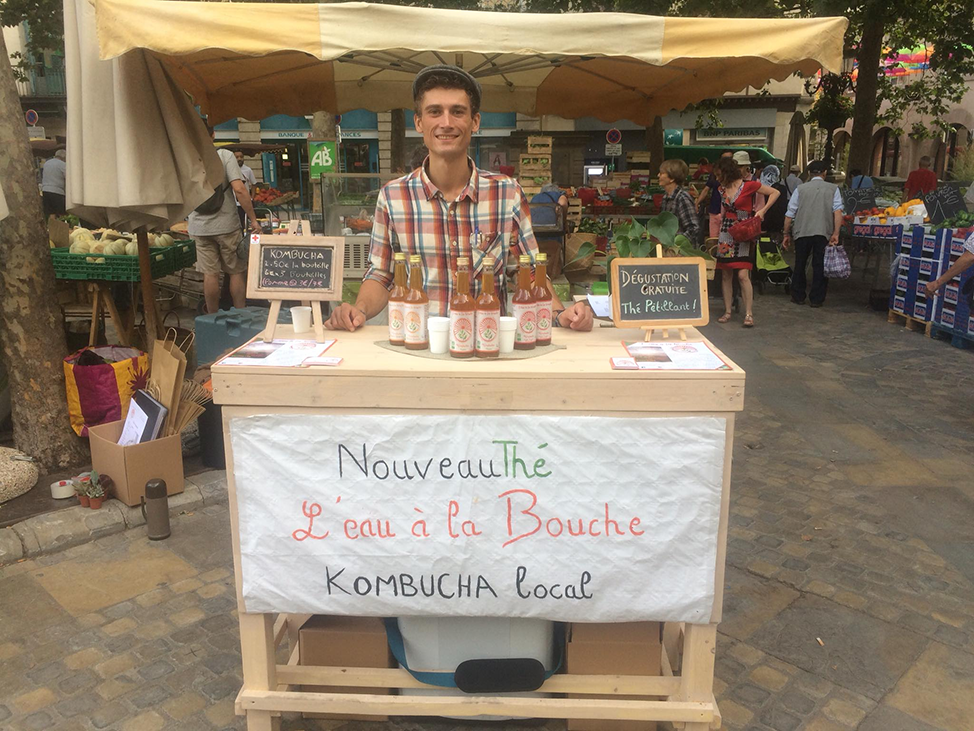
What’s life like in the South of France? How do you spend your days when not working on the kombucha business side of things?
The South of France is amazing! Where we are at Rimont in the foothills of the stunning Pyrénées Ariégeoises is idyllic, in summer in rains once a week to keep everything green, we’ve got two hectares of land to have animals, a huge veggie garden, there’s a private lake one minute’s walk from the house. It’s truly a little slice of heaven.
Heading to the markets at nearby town, Saint-Girons, each weekend is a treat. French markets are something else! Travelling around the region, out East to the Mediterranean or the ocean to the west, even with work it often doesn’t feel like it as I’m visiting so many beautiful places. Otherwise hiking in the Pyrenees, sneaking in a delicious croissant (how cliché), enjoying the delicious food in the region, it’s more than I could’ve ever hoped for. I’m spoiled for choice!
More about L’eau à la Bouche and Komsult here.




